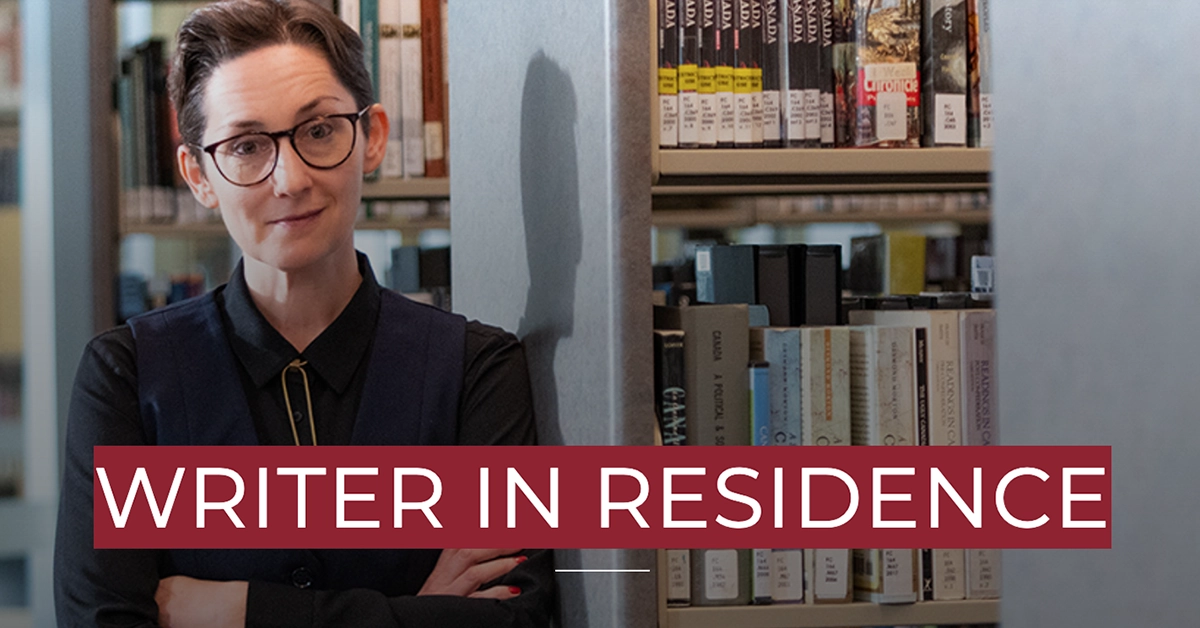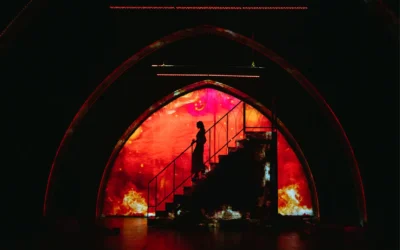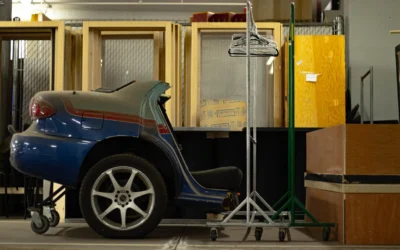M.L. Martin travels through landscapes and centuries for their work as a poet and translator. They’ve landed at MacEwan this winter term as the 31st writer-in-residence.
On Feb. 15, a casual group of students and faculty mingled at MacEwan to meet Martin. The attendees’ conversations meandered through talking points like poetry, translation, and the responsibilities of authors amid the occasional coffee, sandwich, or cookie. MacEwan’s writer-in-residence program has provided MacEwan’s campus community of faculty, staff, and the general public access to encouraging and informed insight from fellow writers since 1992. Martin will be at MacEwan for the winter term, Mondays and Thursdays, from 12:30 p.m. to 4:30 p.m., in Room 6-227.
Martin’s projects are rooted in poetry, translation, and collaboration. Their works explore areas like language and humanity. Martin has been involved in editorship since 2002 and has been an assistant editor in poetry for Asymptote Journal since July of 2021.
Martin’s current project is a radical endeavor of translation. Their subject is the anonymous Anglo-Saxon poem “Wulf ond Eadwacer” which dates back to the 10th century. Their translation, “W&E”, will be published with Action Books in the spring of 2025. Martin intends to return the poem to its feminist and queer voice. The original poem, or as Martin says, “what exists of the poem” since it could be a fragment or a translation from another ancient language, is 19 lines. When speaking with Martin, they said that their translation was currently sitting at 120 pages.
Their website lists past work, like Theater of No Mistakes which was published through Anhinga Press. The poet uses the term ekphrastic to describe their prose. They say, ” So, for me, ekphrasis is when you use one art form to engage directly almost in conversation with another art form.” The art in question is Philip C Curtis’s paintings of the Sonoran across Mexico and the U.S.’s western border.
Journey to Shoshone Falls was Martin’s installation shown at the Gilcrease Museum in Tulsa, OK. In October of 2019, Martin gave museum go-ers a look at archival material based on language until March 15th, 2020. Afterward, the piece became handheld and available in a micro-chapbook from Walls Divide Press.
Fulfilling their role at MacEwan as a mentor to writers is not Martin’s first rodeo, so to speak. They started mentoring writers in 2016 at the University of Houston. Later, Martin took on a year-and-a-half creative writing mentorship funded by the Tulsa Artist Fellowship. In the Fall of 2019, they mentored at the University of Tulsa and Oklahoma Center for the Humanities. However, MacEwan University is their first mentorship experience where the commute might be through 20 to 30 inches of snow.
Days after the Feb. 15 meetup at MacEwan, I had a phone call with Martin. Here are some of the questions and answers from that call.
What is it like to be an author and translator working both cross-nationally (and) …across…time?
“Well, it’s great in a way… I think one of the most interesting things about the project [W&E] is that it is this very ancient poem, but it feels so relevant and so contemporary… Some of the themes in this poem are, you know, not only do they feel relevant to our contemporary mindset, you know, issues like sexual assault, and marginality, and forced migration, and reproductive rights… the poet herself would have never used any of those words. Those words didn’t exist back then, but …that doesn’t mean that those…experiences didn’t exist back then. Right? So, this poem in a way, is an effort of a poet using all of the language materials at her disposal to articulate a lived experience that there really wasn’t a specific language for, like we have now.”
At the event, you…talked about the multiplicities of translation, and you asked yourself questions like, “did you enhance it?” and “did you put it in competition with the original work?”…Could [you] please elaborate on these questions you have to ask yourself as a translator?
I think the translator always wrestles with the question of ‘Am I doing justice to the original work?’ …Of course, you want to do the best job you can and you want your finished translation to be compelling and dynamic and interesting. But, you don’t want to misrepresent the original text by turning it into something that it’s not… especially when you’re translating a text from a contemporary language… in that case, you’re representing not just the work itself but to some degree, for your language culture, you’re representing this other culture… So there’s lots of responsibility that comes with that…”
In trying to do the best you can, you’re relying on native informants and academics, and then also using your translator’s notes to add to the conversation. So I’m curious, how collaborative are translations?
“…It varies. It’s always a collaborative process in the sense that you are, whether the original poet or author is dead or alive, you’re always collaborating with at least one person and sometimes even more. So, I think that’s very useful to think of the translator as…default, as a collaborator…”
What conversations do you want to be having with your one-on-one visits and the class visits with faculty and staff?
“Well, of course, I want to be having interesting conversations about literature and about the process of writing. It’s always interesting to talk to writers, emerging writers, new writers, or more experienced writers, and share thoughts on our respective processes of writing. It’s also exciting to talk to, especially emerging writers, about things like the revision process and finding new ways to add to the work and revisit it and reshape it… Sometimes new writers want to learn more about the publishing process and how to get started with that process and start sending their work out, and that’s exciting to… be a witness to that first stage of a writer putting their work out into the world. So, those things are always exciting to me.” Martin is planning a capstone event to close off their stay at MacEwan as writer-in-residence later this term. They plan to discuss their experimental approach to translation, specifically with “W&E,” and hope to read a bit from the project at the event.
Photo from macewan.ca/writerinresidence





0 Comments